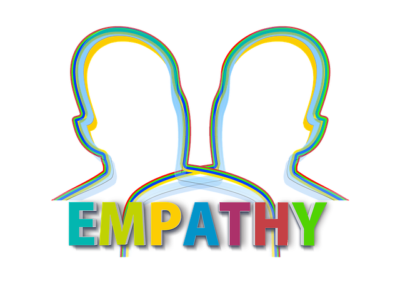Below is what one woman experienced being raised in an unhealthy church, how it distorted her view of God causing her to become angry and bitter, and how she has been recovering since leaving. I have added some commentary after it that deals with the standards.
**********
Here are the facts/reasons why I left the United Pentecostal Church organization when I was 19 years old after being brought up from birth in the same church/organization.
I left as an angry and bitter teenager. I left thinking God (if there was one) was far too unobtainable. He appeared to be angry all the time and was looking for ways to keep me out of heaven. No matter what my parents said to me, it was never enough, it would never heal my broken spirit from all the manipulation and control and mean things that the oppressed members expressed towards me. I hated that they were so devoted to a man that always seemed angry and mad. There were so many things that I could not understand as a young person that I just couldn’t stomach it. I would lay in bed and dream of the day I was old enough to leave.
I hated feeling scared to go to church that he (the pastor) just may call me out because he could read my mind. I felt like I was always being preached at because I am sure he could tell that I was growing cold more and more. I just didn’t care about the people, I thought they were all foolish and weak. They couldn’t make decisions on their own. It was a little church that never grew. One person came in, two were leaving. Most didn’t stay. Only the weak would stay. Asking if you could go on vacation or take a job that would cause you to leave the church for another one was not acceptable. You were always told that it was out of the will of God. Just who did they think they were to tell you what the will of God was or was not for your life? Was it for the money? If your family left that would leave a big gap in the financial stream.
I got so tired of being told on to the pastor by one woman in particular if my hairdo was not holy enough or I curled my eyelashes or… the list goes on.
I so wanted to have a normal life as a child. I wanted to be involved with the outside world but I was so fearful because everything was wrong. I finally came to the resolve that I was just a bad person and that God couldn’t love me and stayed in constant fear that God would come and I was certainly going to Hell. I loved bling and beauty and I hated that I had to look like everyone else and think like everyone else and act like everyone else. I didn’t want to look frumpy, I wanted to have my own personality.
Why can they now do the very things that were forbidden when I was a kid? I remember watching TV at the neighbors (some after school program). I was sent home, scolded and had to pray in my room for an hour to ask God to forgive me. I was so fearful because I was told I would have to tell the pastor. Now they can watch TV, go to movies, go to concerts etc. All the things I wanted to experience was forbidden. What happened? God changed his mind? Did he say, “Pastors, it’s okay as long as everyone pays their tithes and all the other offerings”? Hmmmm not sure about that……
My step son went to a concert and on the way home was in a terrible car accident and the pastor told him that God did it to him because he was rebellious. Really? That same pastor years later had tragedy strike his family and I had always wondered what happened. What was God punishing him for? Oh it wasn’t punishment. I believe now that it rains on the just and the unjust. I don’t feel any ill feelings towards this man, I just feel bad for him that he actually felt this way. (I’m not sure what he feels now because people on his board at the church go to movies, concerts etc.) By the way, my step son is an atheist now.
I never really dealt with the pain that this church caused me. The only way I knew how to deal with it was by being angry. That seemed to help me. It wasn’t until eight years ago that I was in a business meeting for leaders when I heard a speaker that was a Christian teaching us about leadership. I would usually get up and walk out. This time, I couldn’t, it was like I had weights in my behind. I just sat there listening. I totally got what he was saying and something changed in my heart.
You see, when I was little I tried to be a perfect little girl for Jesus. I loved him, I wrote to him in my diary, I wrote songs to him. Then I realized that he was demanding and wanted to see me go to Hell and that is when everything changed. I knew I could never be good enough, I could never please him. I felt when I was created God must have made a mistake. I just couldn’t be like everyone else. I was told that I was rebellious etc. I was so tired of being told that I was bad, not good enough. I think back, I was a pretty good kid that had a little OCD and just wanted to be perfect and excel in everything.
When I got married to my husband we made a vow that we would never go to church except for funerals and weddings. He, too, was a former UPC survivor. We made that vow and all was going great. Then here we were at a weekend event for leaders and we are now listening to this man speak and our hearts actually opened to receive what he had to say. Long story short, we both wound up receiving Christ into our lives in a new, fresh and beautiful way. It changed us on every level. No, we did not do anything like we were taught in the UPC ways and yet God transformed our hearts.
What I have noticed is that even though life is good, there is still residue from my old life in the UPC. I don’t really care what others say or feel about me, but I did care what God felt towards me. I am sorry to say that I had felt that God hated me because I was different from them. I wanted more, I didn’t want to be judgmental, I didn’t want to be like them in any way. When I am with my family I stick out I am sure, but that’s okay. The hard part is, they try so hard to include me but I feel at times that they don’t know what to think. They see I have a walk with God but it’s not anything like what I was taught. I am sure this is confusing to them and that makes my heart sad at times.
What I have learned is this, what matters is what God thinks of me and He is pretty crazy in love with me. Do I have battle scars? Yes. Am I still recovering from a brainwashed life of manipulation and control by man? YES. Will I ever be free from it? YES, not sure if it will be in this life… but I know one thing, I don’t want to be old and bitter so things better change soon because time keeps ticking by…lol. Seriously, not bitter but still dealing with being wounded. My advice, don’t cram it down and pretend it never happened, deal with it and move on.
That’s all for now. My heart tells me that God has something very special for those that have been thrown out for being a rebel, misfit and uncontrollable by religion. Jesus is the same Jesus that walked the earth and He was quite the rebel in the Pharisee’s eyes. He came to give us Life and give it more abundantly. He didn’t come to judge but to love us. If we can only grasp what that truly looks like.
Thank you for listening/reading….
Be Blessed,
Constance
**********
There are some in the United Pentecostal Church who erroneously believe that the organization now allows the viewing of Hollywood made movies and television programs. This misunderstanding arose when they removed the ban on ministers owning a television set in 2013 and also dropped two position papers (video restrictions and technology) and added a new one on the use of media. I have heard that some ministers almost immediately went and purchased a television set after this change, though some had already been using it for years.
While some individuals and even licensed ministers have taken these changes to mean that things previously prohibited are now permitted, the UPCI has NOT changed their stand against them. The Articles of Faith still state what they have for years: “We wholeheartedly disapprove of our people indulging in any activities which are not conducive to good Christianity and godly living, such as theaters, dances, mixed bathing or swimming, women cutting their hair, make-up, any apparel that immodestly exposes the body, all worldly sports and amusements, and unwholesome radio programs and music. Furthermore, because of the display of all these evils on television, we disapprove of any of our people having television sets in their homes. We admonish all of our people to refrain from any of these practices in the interest of spiritual progress and the soon coming of the Lord for His church.”
In the UPCI Manual, it is made clear what ministers may and may not view when it comes to the use of media. Article VII, Section 7 and 29 states, “The use of all media technology must strictly be limited to educational, religious, inspirational, and family content that is consistent with wholesome Christian principles. No minister shall use television or other media technology for the purpose of viewing worldly, carnal and unwholesome media; endeavouring to maintain a Godly atmosphere and influence in their lives.”
So while some ministers, churches and church members have let down on these standards, the United Pentecostal Church still states that they are against such things.
********
Shop at our Amazon store! As an Amazon Influencer, this website earns from qualifying purchases.





